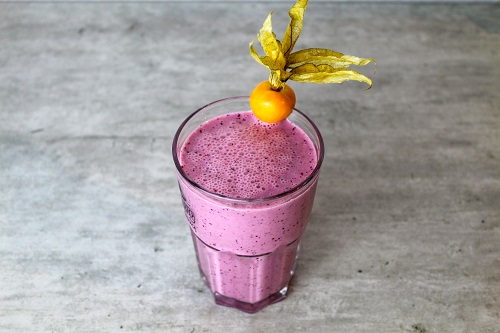Excess body fat can be a harbinger of several health risks. While weight management can often feel like a daunting challenge, it’s crucial to understand that natural fat loss is not just about fitting into your old jeans. It’s about improving your overall health, enhancing your body composition, and boosting your metabolic health.
Striking the right balance between maintaining a healthy weight and preserving muscle mass is a key aspect of healthy weight management. It not only helps ward off chronic diseases but also positively influences your physical appearance and confidence.
The good news is that achieving optimal body fat levels doesn’t necessarily involve drastic measures. Simple yet consistent lifestyle choices can help in reducing body fat and paving the way for long-term health. The challenge, however, lies in identifying these choices and incorporating them effectively into your daily routine. The following sections delve into some of these key strategies to guide you on your journey towards natural fat loss.
 Regular Exercise
Regular Exercise
Exercise plays an essential role in reducing body fat and managing weight effectively. Both aerobic exercises and strength training contribute significantly to this cause.
Aerobic exercises such as running, swimming, or cycling increase your heart rate and help burn calories, thus playing a vital role in exercise for fat loss. On the other hand, strength training exercises like weight lifting increase muscle strength, thereby boosting your metabolic rate. This means your body continues to burn calories even when at rest.
High-Intensity Interval Training (HIIT) is another powerful form of exercise that combines short, intense bursts of exercise with brief recovery periods. It’s not only a time-efficient way to exercise but also particularly effective at burning fat. Therefore, a blend of these exercises can aid in weight loss while improving cardiovascular fitness and muscle strength, helping you attain your health goals more holistically.
 Healthy Eating Habits
Healthy Eating Habits
Achieving fat loss requires more than just sweating it out in the gym; it requires a holistic approach that includes proper nutrition. Maintaining a balanced diet filled with nutrient-dense foods, practicing portion control, and following proper meal timing are all critical elements of healthy weight management.
Nutrient-dense foods, such as fruits, vegetables, lean meats, and whole grains, provide the essential vitamins and minerals your body needs to function optimally while keeping calorie intake in check. This aspect of diet plays a significant role in reducing body fat.
Portion control is another key player in weight management. Overeating, even healthy foods, can lead to calorie surplus and eventual weight gain. To avoid this, consider using smaller plates or bowls, and try to fill half your plate with fruits and veggies.
Meal timing, especially when combined with an eating approach like intermittent fasting, can also support weight loss. By eating during specific windows, you may find it easier to maintain a calorie deficit without feeling deprived.
In essence, a balanced diet with careful attention to portion sizes and meal timing forms a significant part of the approach to healthy eating for weight loss.
 Stay Hydrated
Stay Hydrated
Drinking enough water plays a more significant role in fat loss than most people realize. Adequate hydration helps regulate digestion, boost metabolism, and maintain overall health, making it a vital part of any weight loss plan.
Staying well-hydrated aids in digestion by ensuring nutrients from food are effectively broken down and absorbed. This efficient digestion is beneficial for weight management as it helps to prevent bloating and constipation, which can lead to feelings of discomfort and weight gain.
Boosting metabolism is another benefit of good hydration. Drinking water increases the rate at which your body burns calories – a process known as the metabolic rate. This, in turn, helps with the natural loss of body fat.
Beyond digestion and metabolism, water serves multiple functions in the body. It helps transport nutrients, regulates body temperature, and even lubricates joints. As such, staying hydrated contributes to overall health and wellbeing, which in turn supports your weight loss efforts.
Therefore, drinking plenty of water throughout the day is an essential strategy for hydration for weight loss. Whether you prefer it plain, infused with fruit, or as herbal tea, keeping your body well-hydrated can help you on your path to effective fat loss.
 Get Enough Sleep
Get Enough Sleep
Sleep may not be the first thing that comes to mind when discussing fat loss, but it holds a significant role in maintaining a healthy weight. Sleep impacts both metabolism and hormone regulation, which are crucial factors in weight management.
Poor sleep or inadequate sleep duration can disrupt your body’s metabolic processes, leading to weight gain over time. During sleep, your body repairs and regrows tissues, synthesizes hormones, and builds muscle – all of which contribute to a healthy metabolism. When you’re well-rested, your body can function optimally and burn calories more efficiently, aiding in the natural loss of body fat.
Additionally, sleep affects various hormones in your body, including those responsible for feelings of hunger and fullness. Lack of sleep can disrupt the balance of these hormones, leading to increased appetite and potentially to overeating.
Sleep is also crucial for overall health, affecting everything from cognitive function to immune health. Getting quality sleep can lead to better decision-making, improved mood, and reduced stress, all of which can indirectly support your weight loss goals.
To sum it up, cultivating healthy sleep habits is an essential step in your weight loss journey. Ensuring you get enough quality sleep each night can help you manage your weight and contribute to a healthier lifestyle overall.
 Reduce Stress
Reduce Stress
Chronic stress is a silent enemy when it comes to weight management. It can significantly hinder your progress in achieving your weight loss goals. High-stress levels can lead to hormonal imbalances, specifically elevating cortisol levels. Known as the “stress hormone”, cortisol can trigger fat storage and increased appetite, leading to weight gain.
To counter this, engaging in stress reduction activities is vital. Mindfulness practices, such as meditation and yoga, are excellent for reducing stress levels and have been associated with improved weight management. They enhance the mind-body connection, promote relaxation, and can help you become more mindful of your eating habits.
In addition to mindfulness practices, regular exercise can also act as a powerful stress reducer. Exercise releases endorphins, often termed as ‘feel-good’ hormones, which can alleviate stress and improve mood.
Furthermore, developing a supportive network of friends and family, taking time for hobbies, and ensuring you get plenty of rest can all contribute to stress reduction. It’s essential to identify the sources of your stress and find healthy ways to cope with them.
In conclusion, managing stress is an indispensable part of your fat loss journey. By incorporating stress-reducing activities into your daily routine, you’ll be taking a significant step towards healthy weight management and a more balanced lifestyle.
 Limit Alcohol
Limit Alcohol
Regular consumption of alcohol could serve as a significant hurdle to your fat loss goals. While it might be known for its social and relaxation benefits, alcohol is often overlooked for its calorie content and the potential negative effects it can have on weight management.
Alcohol is calorie-dense and provides little to no nutritional value, earning it the term ’empty calories.’ Regular consumption can lead to a calorie surplus, impeding your ability to maintain a calorie deficit crucial for fat loss.
Additionally, frequent alcohol consumption may negatively impact liver health, which plays a significant role in metabolism and fat burning. Therefore, minimizing alcohol intake could be crucial for those seeking natural fat loss.
Cutting down on alcohol does not mean total abstinence but rather consuming it in moderation. Strategies to reduce alcohol intake could include setting specific alcohol-free days, choosing lower-calorie drink options, or reducing the serving size.
In the quest for natural fat loss, remember to consider the impact of alcohol on your body. Moderation and mindful consumption of alcohol can be a significant step towards your healthy weight management goals.
 Cut Down on Added Sugars
Cut Down on Added Sugars
A crucial aspect of achieving natural fat loss is reassessing your relationship with added sugars. High sugar intake, particularly from processed foods and beverages, is associated with weight gain and health problems like insulin resistance.
Sugars can easily sneak into your diet through soft drinks, desserts, and other seemingly harmless foods. These added sugars are not only calorie-dense but can also lead to an increased appetite, causing overeating. The result is often weight gain, as your body stores the excess calories as fat.
Moreover, a high sugar diet can trigger a cascade of metabolic reactions that affect your body’s insulin response, causing your body to store more fat, particularly in the belly region.
To facilitate fat loss, it is essential to consciously reduce sugar intake. Some practical steps include opting for natural sweeteners like fruits over processed sugars, reading food labels for hidden sugars, and limiting the consumption of sugar-sweetened beverages.
Remember, the journey to fat loss is not about deprivation but about making healthier choices. Opting to minimize added sugars is a sustainable and natural way to support your fat loss goals.
 Increase Protein Intake
Increase Protein Intake
Integrating more protein into your diet plays a significant role in supporting natural fat loss. Protein is a powerhouse macronutrient that boosts satiety, aids in muscle growth, and has a high thermic effect, meaning your body burns more calories to digest it compared to fats and carbohydrates.
A diet rich in protein helps control hunger and cravings, making it easier to stick to a calorie-controlled eating plan. By keeping you fuller for longer, you’re less likely to reach for unhealthy snacks, aiding in healthy weight management.
Beyond controlling hunger, protein is essential for maintaining and building muscle mass. More muscle means a higher metabolic rate, which can accelerate your fat loss efforts even when you’re at rest.
Finally, the thermic effect of food (TEF) comes into play. TEF refers to the calories expended to digest, absorb, and process nutrients. Protein has a higher TEF compared to fats and carbs, which means your body burns more calories digesting protein-rich foods, contributing to weight loss.
Incorporating high-protein foods, like lean meats, dairy, eggs, and plant-based proteins, can help boost your metabolism and aid in natural fat loss. It’s not just about eating less; it’s about eating smart. Remember to make protein a regular part of your balanced diet for optimal fat loss results.
Conclusion
Losing fat naturally is more than just a number on the scale. It’s a holistic approach that encompasses various aspects of your lifestyle from regular exercise, balanced diet, proper hydration, adequate sleep, and stress management to mindful alcohol consumption and sugar intake. The strategies outlined in this guide are all part of healthy weight management that promotes total body health.
One cannot overemphasize the importance of regular exercise. Whether it’s cardio, strength training, or high-intensity interval training (HIIT), physical activity burns calories and improves your body composition by reducing body fat and increasing muscle mass.
Eating habits equally contribute to fat loss. A balanced diet that prioritizes nutrient-dense whole foods, proper portion control, and healthy meal timing can support a calorie deficit necessary for weight loss. Specific dietary choices such as increasing protein intake, limiting alcohol, and cutting down on added sugars also play critical roles.
Remember, every aspect of your lifestyle has an impact on your health and your weight. Prioritizing good sleep, managing stress, and staying hydrated are just as important. They help maintain a balanced metabolism, hormonal equilibrium, and overall wellness, all of which indirectly support your weight loss journey.
Lastly, remember that sustainable weight loss is a gradual process. The goal is not to strive for perfection but for progress. It’s about making lifestyle changes for weight loss that you can stick with in the long term. The road to natural fat loss isn’t always easy, but with patience, perseverance, and the right strategies, it’s absolutely achievable.

About Post Author
Lydia
Read more
Fast Burn Extreme
Fast Burn Extreme operates as an effective fat burner, bolstering energy levels and giving your body the much-needed push to...
The Challenge: Women and Weight Loss
Embarking on a weight loss journey presents a unique set of challenges for women. The intricacies of women's weight loss...
Fat Burn Active
Weight loss is a journey that many embark upon, each with a unique path. Among countless diet plans, workout regimens,...

